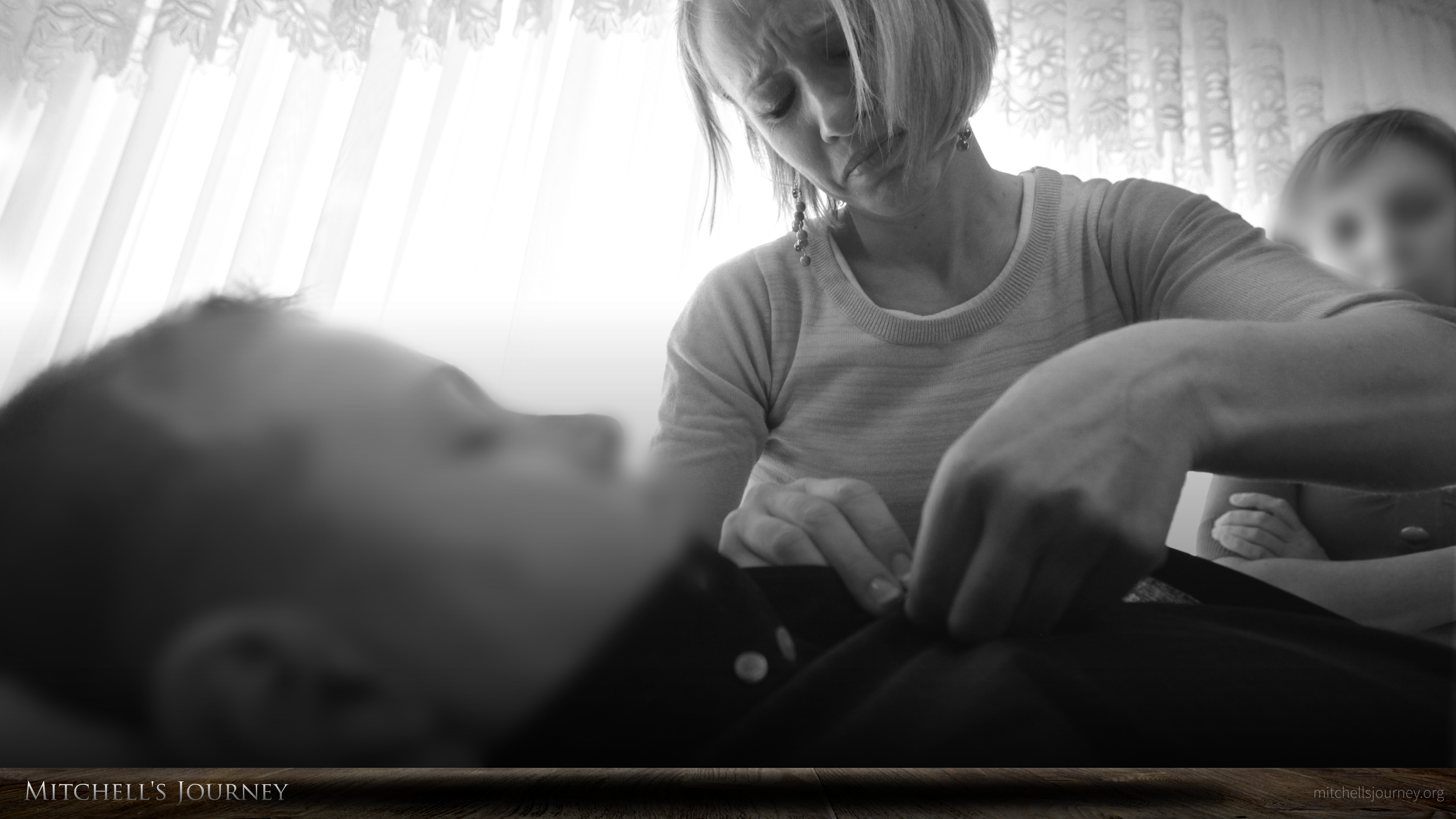A few weeks ago, I walked by Mitchell's room and noticed through the half-opened door his mother sitting on his bed, arms empty. Her heart, even emptier. She had a pain in her countenance only a mother who lost a child could know. As I quietly walked toward the door, my eyes blurred, and I stumbled over my heart as it fell to the floor.
Without making a noise, I took this photo with my iPhone and disappeared into the shadows so she could have her moment uninterrupted. My wife, on his bed, deeply contemplative – stripped of a tender child she loved with all her soul.
I could only imagine what thoughts were crossing her mind as she sat in the very place we tucked him in at night, where we gave him hugs and kisses, had long conversations, and played video games.
This was the very place we held our son's hand weeping that we couldn't save him from death and telling him we were so sorry; the place he said "it's okay, mommy." This was the place our precious son passed away in the deep freeze of a winter night while his faithful puppy had curled around his head as if to comfort him.
I'll never forget that night Mitchell passed away. I can still see her kneeling on the edge of his bed as she draped over him, sobbing, hugging him, holding his lifeless hand … wishing he wasn't gone. That was the day my wife and I left earth and took up residence in an unfamiliar place. That was the day our world changed.
There are days ... sometimes agonizing moments … the gravity of grief is so great it feels like I'm walking on Jupiter. It's a place where your chest feels so heavy even breathing is difficult. I have learned that once you lose a child, you leave earth's gravity forever.
You may visit earth from time to time, but Jupiter is where your heart is. And from what I can tell, we will live the remainder of our lives in the gravity well of grief.
There are many well-meaning people as if to throw an emotional lifeline, who try to remind us life is but a "speck" in the eternal scheme of things. Or they're sorry for our "temporary loss" as if the wave of a hand and a simple utterance will assuage our sorrow. And while I understand the eternal nature of the soul – being mortal, life is the longest thing I know. The years ahead seem to stretch out into infinity and feel so very long without my son.
I miss him terribly.
Jupiter, with its crushing gravity, is home. At least for now.
Author Bill Bryson said his book A Short History of Nearly Everything that the universe is not only larger than we imagine, but it's also larger than we *can* imagine. When I read his words, that very notion blew my mind. To consider that the universe is so big that we don't have the capacity to comprehend it … it gave me shivers. Bill Bryson's comment reminded me of a passage in Isaiah where God said, "My thoughts are not your thoughts, neither are your ways my ways …. For as the heavens are higher than the earth, so are my ways higher than your ways, and my thoughts than your thoughts."
While walking on Jupiter, I have learned that to have a knowledge of God (even a relationship with Him) doesn't protect us from pain and sorrow - but it can give meaning to pain and suffering.
One day my heart will leave Jupiter for a better place. Between now and then, the gravity of grief is a necessary crucible of growth. After all, it isn't our bodies that need to grow, but our souls.
And as I gaze into the night sky and contemplate the sheer immensity of space and humankind's utter nothingness in the context of the universe – I feel a whisper in my soul that we are the reason all of that was created in the first place.
---
At the request of Mitchell's Journey readers, this is a repost from the original 2013 story.



